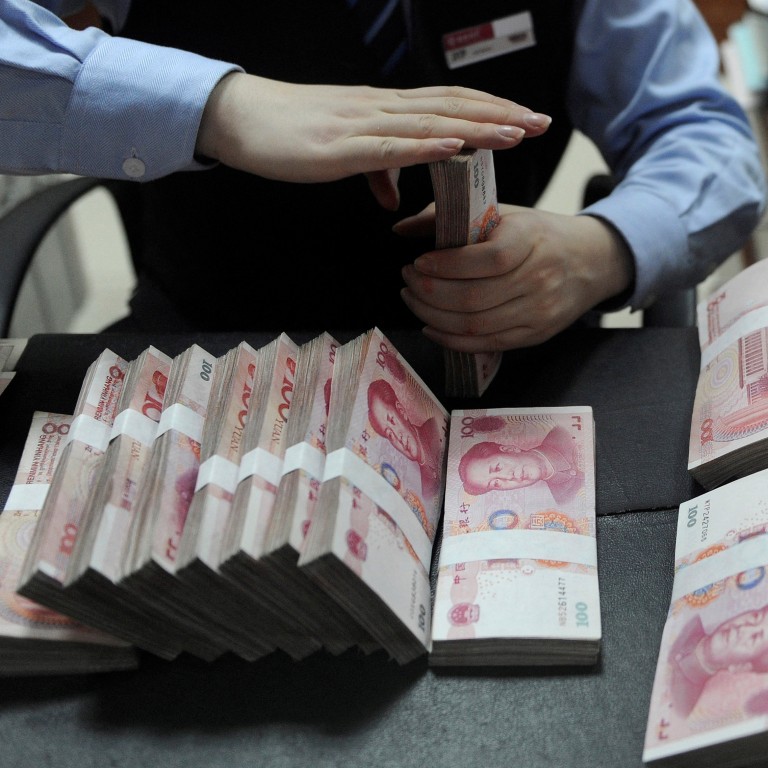
China’s foreign ministry, customs, central bank among top agencies in audit net over 1 billion yuan ‘misconduct’
- Exorbitant pay hikes, unauthorised investments and failure to hand in profits among deviations spotted by National Audit Office
- Report follows study of 228.6 billion yuan in budget allocations to 41 central government departments and their affiliates from November to February
China’s latest audit report has highlighted more than 1 billion yuan (US$138 million) in “misconduct against financial discipline” by government departments, shedding rare light on how offices at various levels failed to follow central directives.
Deviations spotted by the top auditor included exorbitant pay hikes, unauthorised financial investments and spending too little or too slowly on key projects, with China’s foreign ministry, customs agency, central bank and an affiliate of its top economic planner among the high-profile offices implicated.
The findings by the National Audit Office came as it scrutinised 228.6 billion yuan in budgetary allocations to 41 central government departments and their affiliates from November to February.
The irregularities also included profiting from subcontracting projects and hosting forums, industry contests or training sessions, as the government departments took advantage of their power or franchisee rights, according to the audit report released on Monday.
Some departments put their irregular incomes into their own coffers, while others were found to have inflated expenditures by including spending on gifts or personal entertainment.
In a year when Beijing ordered governments at all levels to “tighten belts” and “keep spending low to benefit the people”, some departments were found to have paid out too much in staff salary or welfare benefits, or in providing grand offices, as large as 137 sq m (1,475 sq ft) per employee in some cases, according to the report.
Meanwhile, 17 departments and their affiliated institutions made poor decisions or unauthorised financial investments, resulting in a combined 431 million yuan in losses.
Audit work is an important mission on the road to building China into a great modern socialist country and advancing national rejuvenation, Xi told a May 23 meeting of the Central Auditing Commission, which he heads.
Chinese anti-corruption watchdog says crackdown will continue
“As the arm directs the fingers, we are resolutely following the leadership and instructions of the [central leadership],” a policy research official at the audit office was quoted by the official People’s Daily as saying on Wednesday.
In March, Finance Minister Liu Kun said it would be a “long-term” policy to reduce government budgets and ensure funding for projects aimed at supporting businesses or improving people’s livelihoods.
The general budget outlays of central government departments have been cut for four years in a row. Last year’s budget was 2.1 per cent less than in 2021, while actual expenditure was 3.5 per cent lower, according to official data.
Central government departments were “relatively well regulated” in general, while problems with their affiliated units surfaced “from time to time”, the audit report concluded. State assets management, however, was not strict and efficient enough, it said.
Among the 41 government departments audited, an affiliate of the National Development and Reform Commission – China’s top economic planning body – did not hand in 24.7 million yuan in income received from two asset sales, the report said. The institution also failed to follow government procurement rules in selecting a supplier.
The General Administration of Customs was also among the erring bodies, having claimed an additional 7.6 million yuan as housing subsidies for staff. It was also found to have kept 9.8 million yuan of fiscal surplus to itself.
The Ministry of Foreign Affairs, meanwhile, failed to promptly handle 78.6 million yuan in fiscal surplus from infrastructure projects, and also did not hand over to the state 6.78 million yuan in income from rental property.
Two infrastructure projects of the ministry did not start construction on schedule, resulting in 12.8 million yuan of the allocated funds sitting idle. It also incurred losses in selling an asset and making overseas investments.
The report also found discriminative clauses in a 291 million yuan procurement project of the People’s Bank of China (PBOC). Also, the central bank’s anti-money-laundering analysis centre did not hand in 12 million yuan of surplus funds to the state.
In 2020, employees of the PBOC’s digital currency research centre received an average pay rise of 28 per cent, more than eight times the officially mandated limit.


